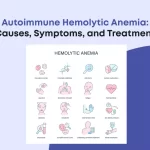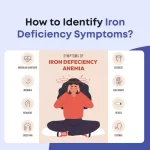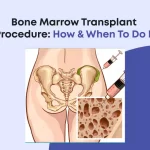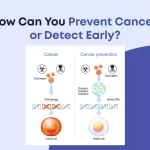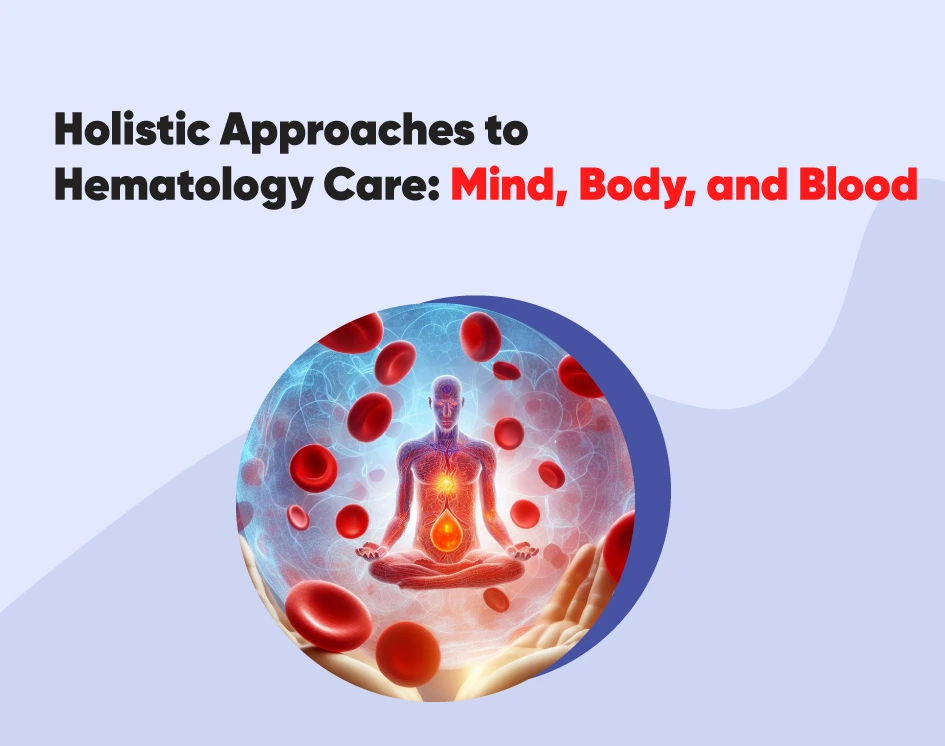
Holistic Approaches to Hematology Care: Mind, Body, and Blood
In the contemporary healthcare environment, holistic care has garnered substantial acknowledgment and significance. Holistic care embraces a thorough strategy for addressing individuals’ needs, encompassing not just their physical symptoms but also their mental and emotional health. Within the field of Hematology, this methodology is progressively establishing itself as an indispensable element of patient care. This article explores the comprehensive approaches to Hematology care, investigating how they incorporate mental, physical, and hematological aspects and their potential advantages.
Understanding Holistic Care in Hematology
Holistic healthcare, often known as integrated or complementary medicine, is devoted to treating Hematology diseases by considering the fullness of a patient’s experience. This strategy brings together common medical practices such as chemotherapy and radiation with different ways of healing that concentrate on a person’s mental and physical health. This broader perspective acknowledges the deep connection between physical well-being, mental contentment, and emotional harmony.
While medical interventions like chemotherapy and radiation have demonstrated their efficacy in combating Hematology conditions, they can trigger challenging adverse effects that affect the overall quality of life for patients. Holistic healthcare intervenes by offering complementary assistance, with the goal of mitigating these side effects and improving the patient’s overall well-being.
Holistic Interventions for Hematology Care
Holistic care offers a range of interventions that can play a pivotal role in managing Hematologic diseases and improving a patient’s overall experience. These include:
Mind-body techniques, supported by research, emphasize the intricate connection between mental well-being and physical health. Modalities such as meditation, hypnosis, and guided imagery equip patients with valuable tools for relaxation, diverting their attention from discomfort, and alleviating medication-induced side effects. These practices holistically enhance overall well-being.
Engaging in gentle physical activities can mitigate profound fatigue, reduce stress levels, and enhance sleep quality. Scientific investigations indicate that adhering to a consistent exercise routine may even extend the lifespan of Hematology patients, underscoring the significance of incorporating physical activity into comprehensive care plans.
Nutritional care, delivered by registered dietitians, plays a pivotal role in addressing the dietary requirements of Hematology patients. These experts provide invaluable guidance on nutrition to preempt and manage treatment-associated side effects, bolster the body’s immune response, and foster a complete recovery.
Benefits of Holistic Hematology Care
Hematological disorders have the potential to significantly influence a person’s existence, encompassing not solely their physical well-being but also their mental and emotional equilibrium. Holistic care offers a unique set of benefits that can significantly enhance the overall Hematologic disease recovery process.
- Mental Coping: A Hematology diagnosis can elicit complex emotions and feelings of uncertainty. Holistic care can help individuals manage these emotions, preventing the onset of conditions like depression. This holistic approach recognizes that emotional well-being is integral to physical health.
- Stress Management: Stress is a common companion for Hematology patients, from the moment of diagnosis to navigating treatment options. High stress levels can weaken the immune system, making it vital to address stress effectively. Holistic care, including counseling, can provide the tools needed to maintain mental resilience.
- Enhanced Quality of Life: Hematologic disease treatments often bring about side effects that can diminish the enjoyment of daily activities and hobbies. Therapy, an essential component of holistic care, offers a safe space to discuss and address these challenges, ultimately improving the patient’s overall well-being.
Navigating Risks in Holistic Hematology Care
While holistic care offers numerous benefits, it’s essential to tread cautiously and make informed decisions. Confusing holistic care with alternative remedies can be risky, as some individuals may abandon standard Hematology treatments in favor of unproven alternatives. This course of action can lead to disease progression and diminished treatment efficacy.
Certain holistic approaches, such as diets claiming to cure Hematologic diseases or unverified supplements, may be costly and potentially harmful. For example, antioxidants and St. John’s Wort can interfere with Hematologic disease treatments, rendering them less effective.
Choosing the Right Holistic Care
When considering holistic care, it is crucial to collaborate closely with your healthcare provider. Your doctor is knowledgeable about your specific condition and medications, making them an invaluable resource in guiding your choices. To make informed decisions, keep the following questions in mind:
- Does the treatment claim to cure Hematologic diseases?
- Do healthcare experts recommend the treatment for Hematology care?
- Is the treatment supported by human studies and scientific evidence?
- Is the method widely used and considered safe?
- What are the potential side effects and drug interactions associated with the treatment?
Initiating a Dialogue with Your Healthcare Provider
Initiating a conversation with your healthcare provider about holistic care may initially seem daunting. However, open communication is crucial for your well-being. Your doctor can provide valuable insights, recommend complementary and alternative medicine practitioners, and help you make safe choices. Here are some tips for discussing holistic care with your doctor:
Prepare a List of Questions: Bring a list of questions about specific holistic treatments you are interested in exploring. Seek your doctor’s guidance in making informed choices that align with your Hematology care.
Present Reliable Information: Share information about the holistic treatments you wish to explore, ensuring it comes from reputable sources like medical journals or government-sponsored health websites.
Discuss Treatment Adjustments: If you are considering delaying or omitting standard treatment, discuss the pros and cons with your doctor. Ultimately, the decision should prioritize your well-being.
Highlight Side Effects: If you are experiencing treatment-related side effects, express your concerns to your doctor. They may be aware of non-drug therapies that can alleviate these issues.
Inquire About Evidence: Ask your doctor to provide insights into which products and practices are grounded in evidence-based research and which may be based on unproven claims.
To sum up
Hematologic conditions necessitate a holistic strategy that acknowledges the importance of both physical and mental health. Healthcare practitioners are increasingly emphasizing the value of holistic treatment, which includes all parts of a patient’s life. Holistic care strives to satisfy patients’ psychological and emotional needs in addition to delivering early Hematologic illness tests and effective treatments.
Through the incorporation of holistic modalities like acupuncture, mind-body practices, physical activity, and nutritional support, individuals undergoing Hematology treatment can attain a more encompassing and harmonized path to recovery. Moreover, transparent dialogue with medical professionals guarantees that holistic care serves as a supportive adjunct to conventional therapies, enhancing the overall holistic approach to Hematology healthcare. As patients and their loved ones embark on the road to healing, holistic care assumes a central role in attaining the highest attainable quality of life and well-being.



